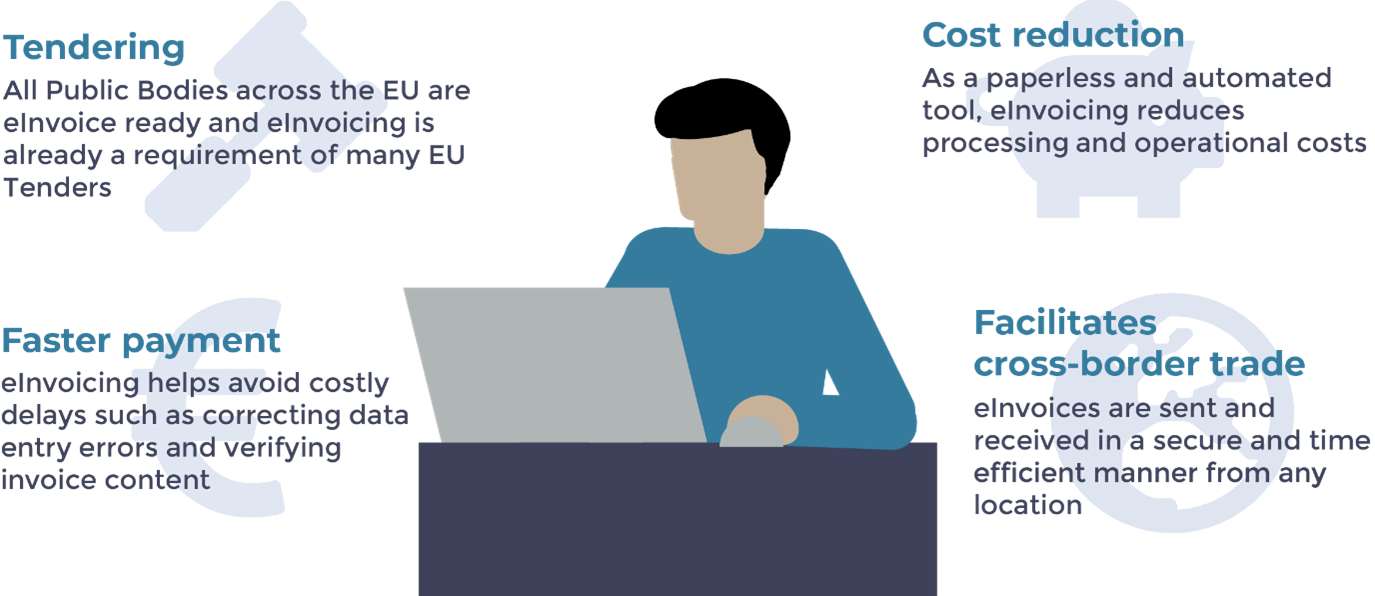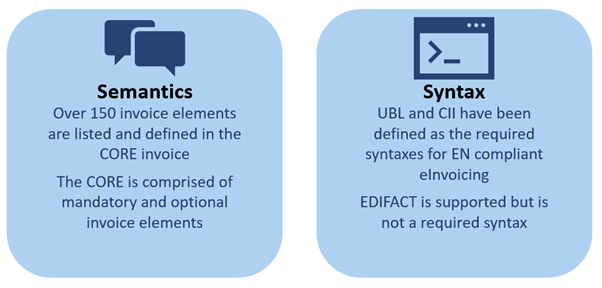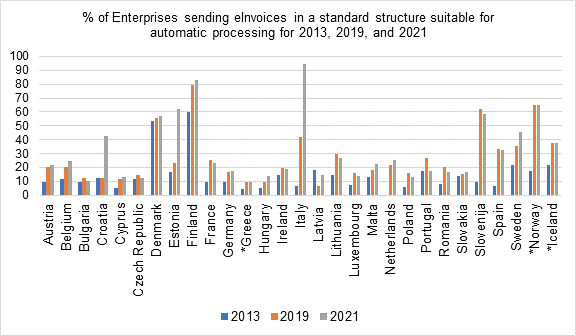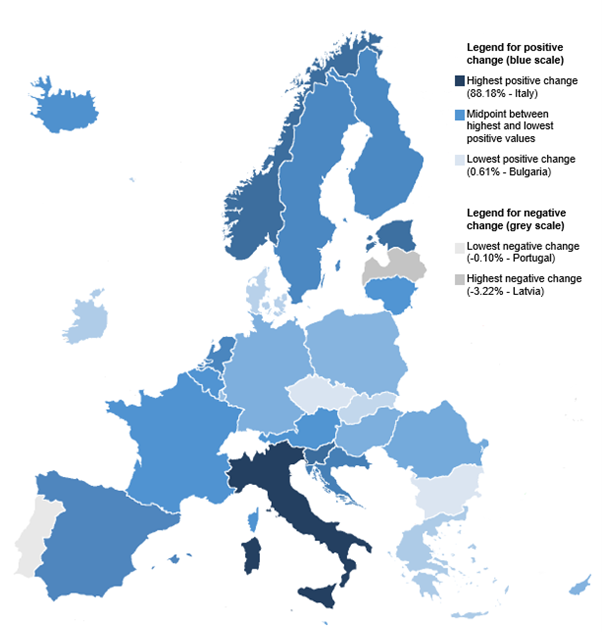The chair of the ICT Sub Committee on eProcurement at the National Standards Authority of Ireland (NSAI), Edmund Gray, who also serves as the convenor and lead editor for several working groups within the European Committee for Standardization (CEN), has co-authored three important reports on electronic invoicing at the European level.
-
COM(2024)72 - Report from the Commission to the European Parliament and the Council on the effects of Directive 2014/55/EU on the Internal Market and on the uptake of electronic invoicing in public procurement.
-
SWD(2024)39 - Evaluation accompanying the document Report from the Commission to the European Parliament and the Council on the effects of Directive 2014/55/EU on the Internal Market and on the uptake of electronic invoicing in public procurement
-
SWD(2024)40 - Executive summary of the evaluation accompanying the document Report on the effects of Directive 2014/55/EU on the Internal Market and on the uptake of electronic invoicing in public procurement
These reports, which have been published by the European Commission, are crucial to the advancement of eInvoicing at national and European level. They highlight the importance of the standards work led by Edmund and other standards experts across Europe in this regard.
In the last two years, the European Commission has driven the development of standards for eInvoicing, aiming to streamline and harmonise electronic invoicing practices across member states. The overarching goal is to enhance efficiency, reduce administrative burdens, and facilitate cross-border trade within the European Union (EU). These standards provide a framework for the exchange of electronic invoices, ensuring interoperability and legal compliance across borders. The European Commission, through the European Committee for Standardization (CEN), has been actively involved in the development and promotion of these standards.

Figure 1 The benefits of standardised eInvoicing
A key development in this area is the European standard on electronic invoicing, known as EN 16931. This standard defines the core elements of an electronic invoice through a semantic data model, paving the way for the creation of practical, user-friendly, flexible, and cost-effective electronic invoicing systems. Part 2 of the standard requires the use of two international XML syntaxes: UBL Invoice from OASIS and CII from UN/CEFACT. Additionally, EDIFACT, the most widely used eInvoice syntax in Ireland, is also supported optionally.

Figure 2 Semantics and Syntax of EN 16931-1
The European Commission has intensified its efforts to promote the adoption of eInvoicing standards among member states. This includes providing guidance and support to national governments, businesses, and public entities to transition towards electronic invoicing. Moreover, the Commission has been fostering collaboration among stakeholders to address technical challenges and promote best practices in eInvoicing implementation.

Figure 3 Percentage of enterprises sending eInvoices in a standard structure suitable for automatic processing for 2013, 2019, and 2021. Source: Eurostat
*Where 2021 data was unavailable, 2019 data was used in place
Ireland has taken proactive steps in embracing the European eInvoicing standard, EN16931, led by the National Standards Authority of Ireland (NSAI) responsible for publishing the standard and the Office of Government Procurement (OGP) responsible for facilitating public bodies to take up eInvoicing. In its commitment to this standard, the Irish Government has adopted PEPPOL, enabling businesses to send eInvoices to all public bodies in accordance with the new requirements.
While these are notable achievements, there is further work to be done in Ireland that can be modelled on developments in this area in other EU member states. Some of these include mandated eInvoicing for Business-to-Government (B2G) transactions and moves towards mandating it for Business-to-Business (B2B) interactions. In these states, these advancements have accelerated their adoption rates and the integration of eInvoicing within their domestic markets.
Recognizing the need to keep pace, NSAI and other CEN members are now focused on refining the standard for B2B use. Furthermore, the European Commission is pushing to update the VAT Directive, aiming to make electronic invoicing the default method for domestic and mandatory for all intra-European Union transactions, which will further enhance the efficiency and standardisation of eInvoicing across Europe.

Figure 4 Percentage change in enterprises sending eInvoices, in a standard structure suitable for automatic processing in Europe from 2013-2021. Source: Eurostat



